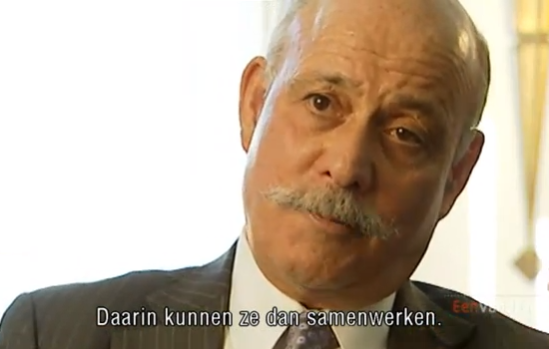Green Economy Macroeconomic Model and Accounts (GEMMA) framework.
One of the most important challenges facing economics today is the need for economic activity to remain within ecological limits. The rising threat of climate change, alarming losses in biodiversity and emerging scarcities in essential natural resources all represent a significant threat to the integrity of ecological systems and all who depend on them. They also threaten the stability of economic systems.
Developing a demographic sub-model and an Input-Output Structure for the Green Economy Macro-Model and Accounts (GEMMA) Framework
From the original article “Developing an Ecological Macroeconomics!” by Centre for International Governance Innovation (CIGI)

a stock-flow consistent financial framework within GEMMA. This framework is an essential prerequisite for answering the difficult questions about financial viability raised by the investment needs of the transition to a green economy.
Climate change poses highly uncertain but potentially destabilizing costs on society. The cost of not acting against climate change could be equivalent to losing between five and 20 percent of GDP each year, indefinitely, according to the influential Stern Review. But the costs of addressing climate change are not inconsequential either. The International Energy Agency (IEA) estimates that the transition away from fossil fuels will require additional investment of at least US$11 trillion between now and 2030. Meeting climate change targets could render existing fossil fuel investments “stranded assets,” essentially worthless in financial terms. Some fund managers are already beginning to exclude such holdings from their portfolios.
Responding to the dilemma of remaining within ecological limits in a growth-based society has often been construed primarily as a microeconomic task — one that governments can address with conventional fiscal instruments of tax and subsidy. The “external” costs associated with environmental and social factors should be “internalized” in market prices, according to familiar axioms. Incorporating “shadow prices” for environmental goods into market prices will send a clear signal to consumers and investors about the real costs of resource consumption and ecological damage, and incentivize investment in alternatives, according to this conventional wisdom.
But this prescription has been hard to implement over the last few decades. Even before the crisis, it proved difficult either to forge agreement on fiscal measures to internalize environmental costs or indeed to stimulate appropriate levels of private investment in alternative technologies. The financial crisis has certainly made both of these tasks harder. Despite an early focus on “green stimulus” as a way of invigorating the global economy, subsequent responses have failed consistently to address the ecological challenges.
Fears of damaging economic growth have led politicians to shy away from both ecological taxation and green investment. In fact, fragile private and public sector balance sheets have slowed down investment in the real economy generally, let alone the additional (and less familiar) investment needed to make a transition to a low-carbon economy. Conventional responses have focussed instead on cutting public spending (austerity) and stimulating consumption growth (consumer spending) as the basis for economic recovery. Unfortunately, these responses tend to ignore the structural problems of the conventional paradigm and delay the investment needed in the green economy.
Climate change poses highly uncertain but potentially destabilizing costs on society.
The scale and nature of this dilemma suggest that the combined challenges of climate change and resource scarcity require macroeconomic as well as microeconomic responses. In fact, there is a need to develop a fully consistent “ecological macroeconomics” in which it is possible to maintain economic stability, ensure full employment and yet remain within the ecological constraints and resource limits of a finite planet.
This task — to develop an ecological macroeconomics — is the one we set ourselves three years ago. Working together from clear first principles, we began to build our Green Economy Macroeconomic Model and Accounts (GEMMA) framework. The fundamental building blocks of our approach were three-fold.
First, we wanted our model to reflect accurately the basic structure of the real economy — that is, to provide an account of incomes, spending, investment, taxation, demography and the structure of industry consistent with the United Nations System of National Accounts for any given country. Second, we wanted our framework to make a full and proper account of the ecological and resource constraints on the global economy — as they applied at the scale of the national economy. Finally, we wanted our model to incorporate a consistent description of the financial economy, including the supply of money from and to economic actors, and the effect of the money supply on both nominal and real demand. An ecological macroeconomics must show us not only how much investment is needed, for instance, in order to reach ecological goals, but also how that investment is to be financed.
This last goal was particularly important in the wake of the financial crisis. One of the main shortcomings of conventional economics was its failure to anticipate the impact of fragile balance sheets on the stability of the economy. In fact, most conventional economic models virtually ignore the balance sheet structure of the national economy, in spite of warnings by some far-sighted economists of its importance for economic stability.
Tim Jackson and Peter Victor’s final CIGI-INET report is Developing a Demographic Sub-model and an Input-Output Structure for the Green Economy Macro-Model and Accounts (GEMMA) Framework.
Tim Jackson is Professor of Sustainable Development at the University of Surrey and Director of the Sustainable Lifestyles Research Group. From 2004 to 2011 he was Economics Commissioner on the UK Sustainable Development Commission, where his work culminated in the publication ofProsperity without Growth.
Peter Victor is Professor in Environmental Studies at York University. He is an economist who has worked on environmental issues for over 40 years as an academic, consultant and public servant. His book Managing without Growth was published in 2008. In 2011, he was awarded Canada Council’s prestigious Molson Prize.



You must be logged in to post a comment.